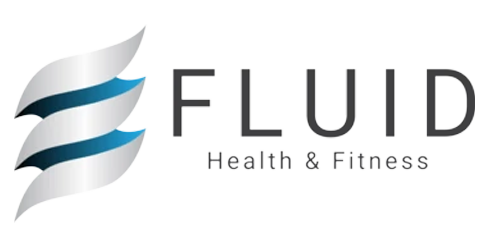
Apr 30 , 2021
0 Comments
Gut Health | The Microbiome
The Microbiome
The microbiome is an ever-changing world within the human body and it’s balance plays an important role in health and immunity.
The microbiome defined:
A microbe in a living organism that is so small that it cannot be seen with the naked eye, and is a general term used to describe a variety of organisms including bacteria, fungi, viruses and microscopic animals. Bacteria are a diverse group of single-celled organisms, most of which are smaller than human cells, that come in many different shapes, sizes and functions. Viruses are particles that cannot reproduce on their own, instead having to hijack a host’s cells to replicate. They are specialized to specific hosts and often to a specific cell type within the host body. Microbiome can refer to the community of microbes or it can refer to the whole collection of genes of the microbes in a community. The genes of the microbes living in the human body outnumber human genes by 100 to 1. Some of the microbe genes code for enzymes that break down food that the human body can’t digest on its own and some code for proteins that build essential nutrients or molecules that help keep harmful bacteria away.
The ever-changing microbiome:
The microbiome is not a stagnant community, it is always changing, developing and evolving. A human fetus is more or less sterile (no microbes). However, from the moment a person is born, a person is inoculated and begins accumulating thousands of different species of microbes. Even in adulthood and old age, the microbiota continues to shift. Changes often happen in response to a variety of events, including illness, disease, antibiotic treatment, fever, stress, injury and changes in diet. After an acute event, the microbiome will tend to revert to its “baseline” state. However, there are large events (like puberty, pregnancy and menopause) that can cause larger shifts. Because so many different events can affect the microbiome, there is a lot of variability in populations among individuals, much like a fingerprint. Microbes vary with gender, genes, diet, climate, age, occupation and hygiene.
Microbiome and disease:
It has only been in recent years that researchers have really begun to understand how microbes help keep people healthy and how just a subtle imbalance in the population can cause disease. There are many health conditions that involve microbes, including:
- Acne – Usually happens when a naturally occurring bacteria that lives on the skin invades hair follicles, causing irritation and infection.
- Autoimmune diseases – This is where the immune system starts attacking the body’s own tissues, this can include parts of the digestive tract like the intestines. It is thought that this may be due to improper immune system training during childhood, much of which happens in and around the large intestine, where microbes play a big role.
- Inflammatory bowel disease – It has been noted that the interaction between microbes and the cells lining the intestine is important. One example of this is when some types of bacteria release molecules that irritate the intestine, causing the connections between the cells to loosen and allow large molecules to leak into the blood stream.
- Obesity – People who are fit tend to have different types of microbes in their guts than people who are obese, and when people who are obese lose weight, their microbiota change accordingly. While there are many factors that can lead to obesity including genetics, diet, environment and lifestyle, there are also studies that have shown evidence linking obesity to the microbiome.
Antibiotics vs. microbiome:
Antibiotics are medicines that are created to help fight or stop infections caused by bacteria. There are a variety of different types of antibiotics that work in different ways to fight off bacteria. This can range from keeping bacteria from building cell call to affecting the protein building or DNA copying specific to bacteria. It is important to note that antibiotics in the bloodstream will not only kill bad bacteria, but also the resident healthy bacteria. Good bacteria are an integral part of the immune system and help keep the human body healthy. When antibiotics kill off good bacteria it can result in compromised health and opportunistic infections. Antibiotics are not only given to people to fight off infections, but they are also used in many food products. The over-use of antibiotics, whether clinically or in food, can not only lead to a compromised microbiome, but it can also put selective pressure on bacteria to become resistant.
Why is it important:
The microbiome is made up of many moving pieces and plays an important in the human body ecosystem, including the immune system. It is important to be aware of how the microbiome and human body interact and how this interaction can affect health status. Being aware means that steps can be taken to protect the microbiome and in turn protect the human body. There are things that can be done to protect the microbiome include taking in adequate amounts of probiotics and prebiotics, participating in adequate amounts of physical activity and limiting the intake of foods/beverages that can be disruptive to the microbiome (including trans fats, process sugars/foods, simple carbohydrates).
Goals
- Awareness:
- Just as in previous weeks, the first step to making any healthy changes is to become aware of what things can compromise your health.
- Review this presentation and the overview of gut health presentation from 2 weeks ago.
- Note the signs and symptoms of GI distress, as many of these symptoms can be seen when there is an imbalance in the microbiome.
- Review what types of events can disrupt the healthy microbiome.
- Take Note:
- .Continue with your food journal from last week. Log at least 3-4 more days.
- Advance your journaling by including:
- All food & beverages consumed
- Any GI distress symptoms
- Any supplements or medications taken
- Review your journal and take notes:
- Are there any imbalances in your macronutrient?
- Is there anything missing from the food groups?
- Are you taking any supplements or medications that might influence the microbiome?
- Are you consuming too much of any food products that can harm the microbiome?
- Take Action:
- .Take your notes from your weekly food journal and pick out 1 or 2 things that you want to improve in terms of promoting a healthy microbiome.
- Examples:
- Adding more pre- and pro-biotic foods to your diet.
- Increasing your intake of fruits and especially vegetables.
- If you are taking an antibiotic to treat something, adding a probiotic supplement to help re-populate your microbiome.
- Decreasing your intake of processed foods



